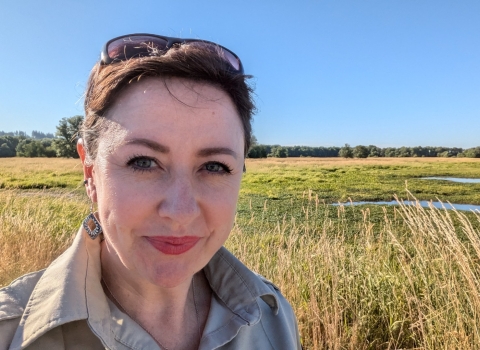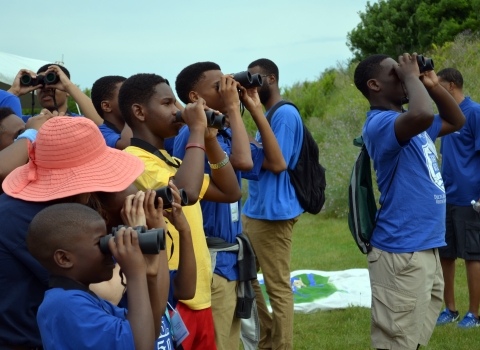Recreational boaters and the nation’s waterways will benefit from more than $16 million in grant funds, thanks to the U.S. Fish and Wildlife Service’s Clean Vessel Act (CVA) program. Since the program’s inception in 1993, these grants have improved pump-out stations and waste reception facilities for recreational boaters and local communities, increasing opportunities for fishing, shellfish harvests, and safe swimming in our waterways.
“Our state agency partners and the recreational boating community play a crucial role in creating and maintaining healthy waterways across the nation,” said Service Director Martha Williams. “Grants through the Service’s CVA program showcase our commitment to working with others to improve infrastructure that benefits local communities and aquatic resources.” This year’s projects complement the ongoing efforts of the Biden-Harris Administration’s work through the Bipartisan Infrastructure Law Bipartisan Infrastructure Law
The Bipartisan Infrastructure Law (BIL) is a once-in-a-generation investment in the nation’s infrastructure and economic competitiveness. We were directly appropriated $455 million over five years in BIL funds for programs related to the President’s America the Beautiful initiative.
Learn more about Bipartisan Infrastructure Law and other Investing in America initiatives to strengthen infrastructure and prepare it to meet future needs.
In FY 2023, 23 states and the District of Columbia will receive a total of $16 million in federal funding support for 32 projects. Partner agencies will provide more than $5 million in non-federal matching funds toward this year’s projects. The state recipients will use CVA funding for a variety of projects including the maintenance and addition of new pump-out facilities, the addition of floating restrooms accessible to people with disabilities, and mobile pump-out vessels to service recreational boats. Grant funds will also support outreach and the distribution of educational information about the importance of proper disposal of vessel sewage, environmental pollution and health problems that can result from direct sewage discharge into waterways, and the location of pump-out and other waste-receiving facilities for use by the recreational boating community.
Funded through manufacturer excise taxes, CVA grants ensure continued opportunities for recreational boaters to enjoy clean waterways that support recreation and conservation. Infrastructure built or purchased with these funds ensures recreational boaters have a safe, convenient, and effective method to dispose of on-board sewage. Through CVA grants the Service has allocated more than $345 million to support states and territories in their efforts to keep waterways clean through the construction, renovation, operation and maintenance of pump-out stations and waste reception facilities that benefit recreational boaters and local communities.
Funds for the program are provided annually from the Sport Fish Restoration and Boating Trust Fund and are derived from excise taxes on fishing equipment, motorboat and small engine fuels, import duties and interest on the fund. State fish and wildlife agencies must provide at least 25% of the grant project’s costs. These partnership efforts are a win-win for clean water and the many people who enjoy recreational boating and the great outdoors.
Find more information about the CVA program.
The U.S. Fish and Wildlife Service works with others to conserve, protect and enhance fish, wildlife, plants and their habitats for the continuing benefit of the American people. For more information, visit www.fws.gov and connect with us on social media: Facebook, Instagram, Twitter, LinkedIn, Flickr, and YouTube.



